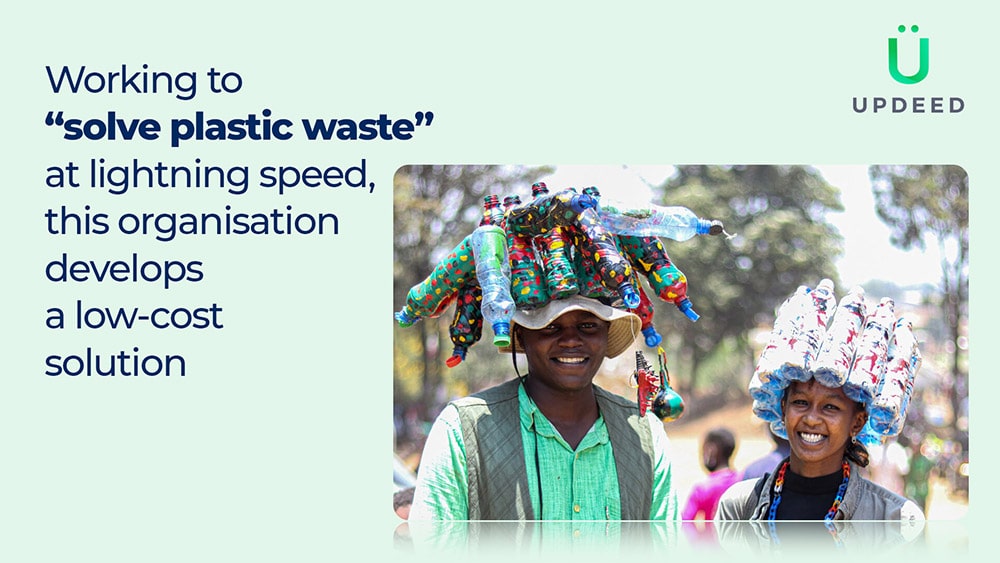Working to “solve plastic waste” at lightning speed, this organisation develops a low-cost solution
We as humans don’t want to see litter. However, diverting or dumping plastic waste in developing or low-income countries is not the solution.
What if it’s possible to have a solution that can reach them within two weeks, and they can have the training and recycle 200kgs of plastic waste daily?
Brian GisoreNyabuti, the Chairman at Slums Going Green and Clean in Kibera – the largest slum of Nairobi, Kenya introduced an innovative recycling initiative called Waste Free in ’23.

This initiative stands out for its exceptional features, including the environmentally friendly recycling of 100% plastic waste. Operating within locally built micro-recycling centres in low-income communities, Waste Free in ’23 tackles waste directly at its source, eliminating the need for transportation between collection, dumps, and recycling plants.
The cost stands at US$2000 for both – equipment and training.
Nyabuti, while talking to UPDEED, said, “Nairobi can be waste free in 2-3 years, and there will be no more reason for landfills or dumping of garbage in developing countries as well.”
He is also the secretary general of the Kenya national waste pickers welfare association which has over 24000 members. He was born and raised in Kibera, Kenya.
Eliminating the need to transport garbage
As per Nyabuti, diversion is not the solution, and developing countries do not have the money to build a billion-dollar landfill.
Hence, to tackle the mounting plastic waste crisis, the organisation has introduced Micro-Recycling Centers, revolutionising the recycling process.
According to Nyabuti, gone are the days of transporting garbage to far-flung processing facilities for sorting and recycling. Instead, these centres have been strategically established within informal settlements, directly serving a community of approximately 3,000 households.
Further, the centres not only address the plastic waste problem head-on but also provide employment opportunities for four to six workers who receive a fair wage, he added.
Equipped with cutting-edge machinery including shredders, plastic slicers, heat presses, and moulds, these facilities can effectively process up to an impressive 200 kilograms of waste per day.
To ensure a steady supply of recyclable material, waste pickers just need to gather plastic waste from the surrounding areas and deliver it to the micro-recycling centre.
The initiative in detail
The Waste Free in ’23 initiative stands out for its distinctive features, setting it apart from conventional waste management practices. Notably, it accomplishes the remarkable feat of recycling 100% of plastic waste in an environmentally friendly manner, showcasing a profound commitment to sustainability.
- The process is facilitated through locally built micro-recycling centres strategically positioned in low-income communities, allowing for waste to be recycled directly at its source.
- By eliminating the need for transportation between collection points, dumps, and recycling plants, this innovative approach not only minimizes carbon emissions but also optimises efficiency.
- Additionally, Waste Free in ’23 serves as a catalyst for economic growth, generating employment opportunities for local community members.
- Furthermore, the initiative fosters income generation by transforming recycled plastic into valuable products, further emphasising the circular economy principles at its core.
Through its multifaceted approach, Waste Free in ’23 demonstrates a transformative model that marries environmental stewardship with social and economic empowerment.
Ready to make a positive impact in the world?
UPDEED is the place for you. Our free and open platform is filled with inspiring stories from individuals and organizations who are making a difference in their communities and beyond. Connect and collaborate with like-minded individuals from around the globe on UPDEED, and discover your own potential to create meaningful change. Join our community and make a difference.





